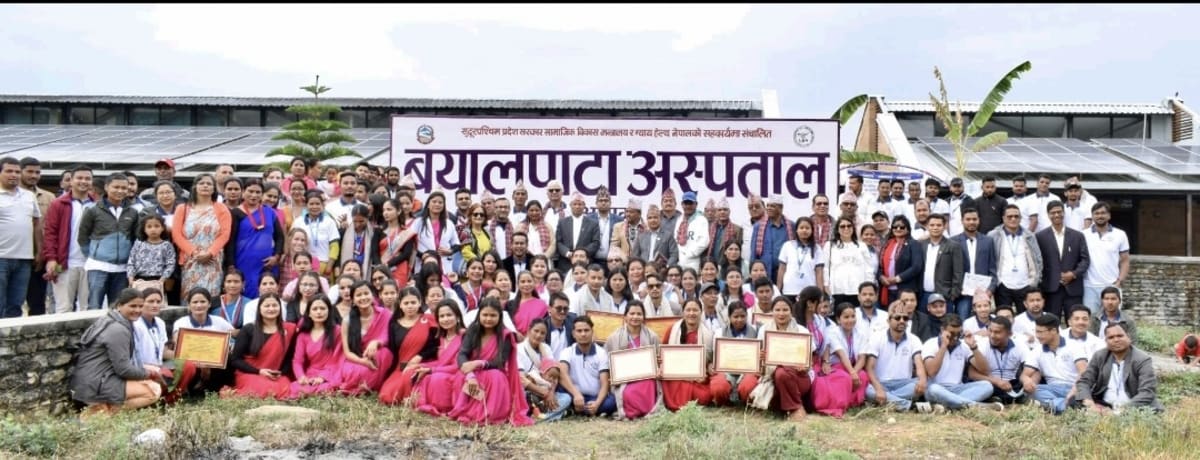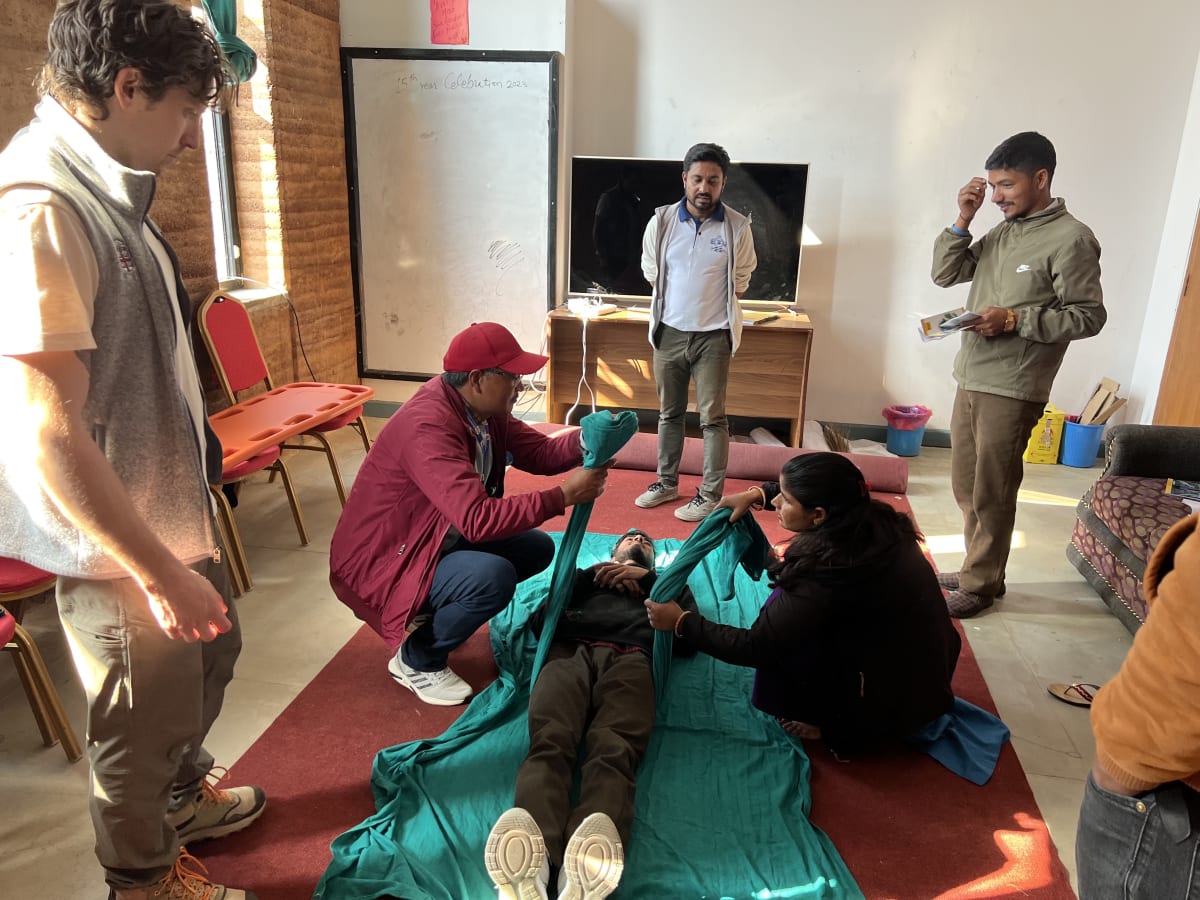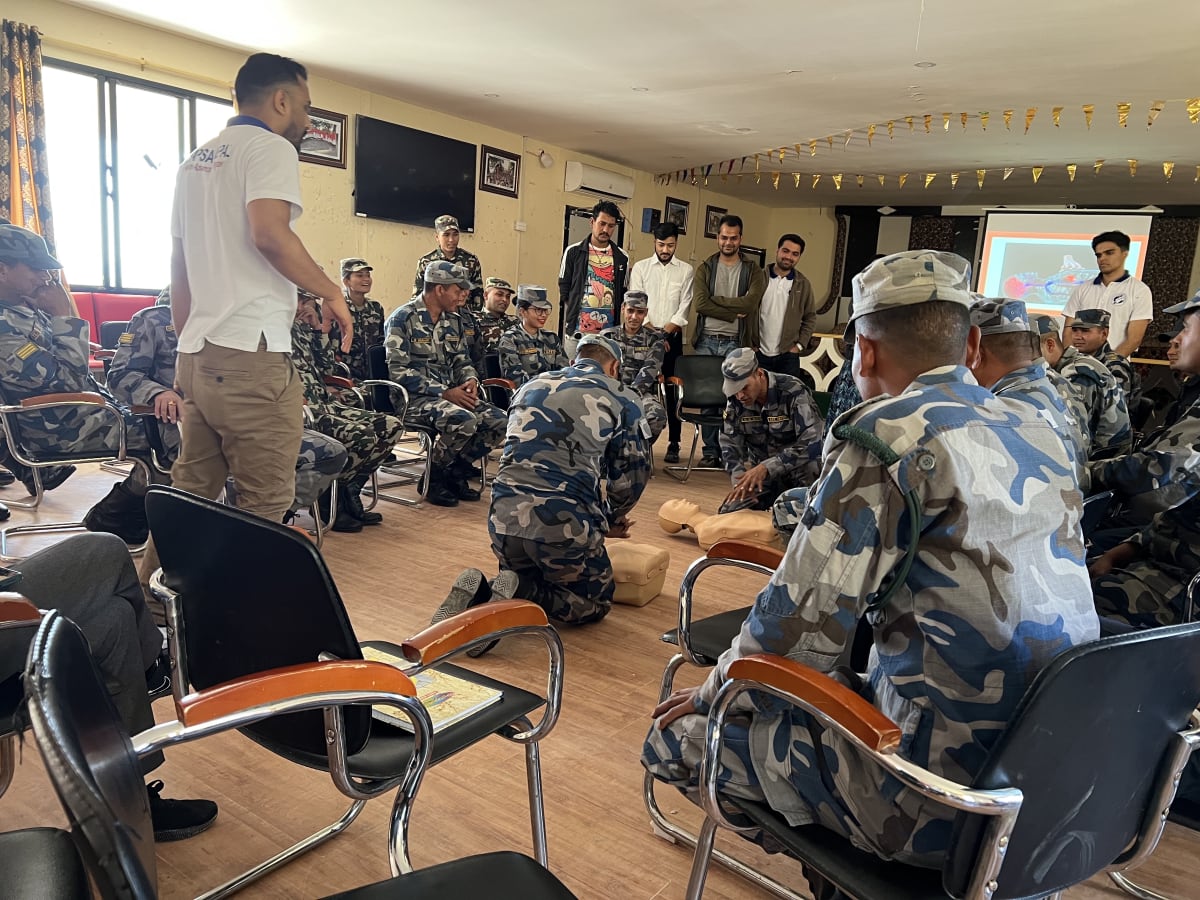This project aims to implement a two-day trauma training course for rural pre-hospital health workers in the Ramaroshan municipality, which is serviced by Bayalpata Hospital (Achham, Nepal). The trauma course will be based on the trauma module from the WHO/ICRC open-access Basic Emergency Care course. This project will be a joint effort between healthcare practitioners from Bayalpata Hospital, local first responders, and the Brown University Division of Global Emergency Medicine.
This educational and research collaborative aims to develop bidirectional knowledge sharing and build research capacity at Bayalpata Hospital and the surrounding municipalities to engage in future programs to improve local pre-hospital emergency medical and trauma care. Additionally, a culturally relevant trauma skills handbook with step-by-step images is being designed by our team to be used as an adjunct to the course. This handbook is being created in consultation with local healthcare providers to ensure the skills are demonstrated with available supplies and are relevant to the injuries they manage. The course will have approximately 4 hours of lecture, with the remaining time focused on hands-on simulation and skills training. We plan to evaluate the impact of the course by assessing clinical indicators for pre-hospital care of traumatic injuries as determined by the use of recommended and available traumatic therapies/interventions before arrival at the Bayalpata Hospital emergency department at six and 12 months after the trauma training course. We will also assess the course impact with pre- and post-course knowledge-based assessments and confidence surveys regarding managing patients with traumatic injuries.
Ultimately, the goal is to strengthen the pre-hospital trauma care in the municipalities serviced by Bayalpata Hospital by developing long-term educational training and research collaboration between healthcare workers in Achham, Nepal, and Brown University.
This project will serve the residents of the Achham district in Nepal. Specifically, it will benefit patients in municipalities surrounding Bayalpata Hospital by improving the pre-hospital trauma care they receive. It will also serve the pre-hospital healthcare workers (ambulance drivers, community health workers, health post workers, and police workers) who complete the trauma course, as they will receive advanced training to further their knowledge and skills in managing trauma patients. This project will act as a pilot program that will hopefully lead to further expansion of trauma training courses in the region.
As I will be facilitating a trauma training course for this project, after I return home, the course participants will continue to use the skills taught during the course to provide enhanced care for patients with traumatic injuries. To assist in developing self-sustainable trauma training in the Achham district, in the next phase of the project, we aim to hold a training of the trainer course to prepare local healthcare workers to facilitate the trauma course in the future.
We also plan to evaluate the impact of the course and will review post-course hospital data to determine if patients arriving with traumatic injuries from the trained municipality received appropriate pre-hospital trauma care to assess the course from a patient intervention perspective. To help determine if an expanded implementation of the trauma course would benefit the surrounding region, the outcomes of this project will be shared with local community leaders, the Bayalpata Hospital leadership, the Nepal WHO office, and the Nepal Ministry of Health and Population.
















The people who this trip will most impact are the residents of the Achham district in Nepal. Specifically, it will serve patients in municipalities surrounding Bayalpata Hospital by expanding the pre-hospital trauma care they receive. It also served the pre-hospital healthcare workers (ambulance drivers, community health workers, health post workers, and police) who complete the trauma course as they will receive advanced training to further their knowledge and skills related to managing trauma patients. Beyond the trauma training program that was implemented, during this trip, our team conducted four CPR and choking training sessions that trained over 100 people. One training session was held for the staff members at Kopila Valley School in Surkhet, Nepal.